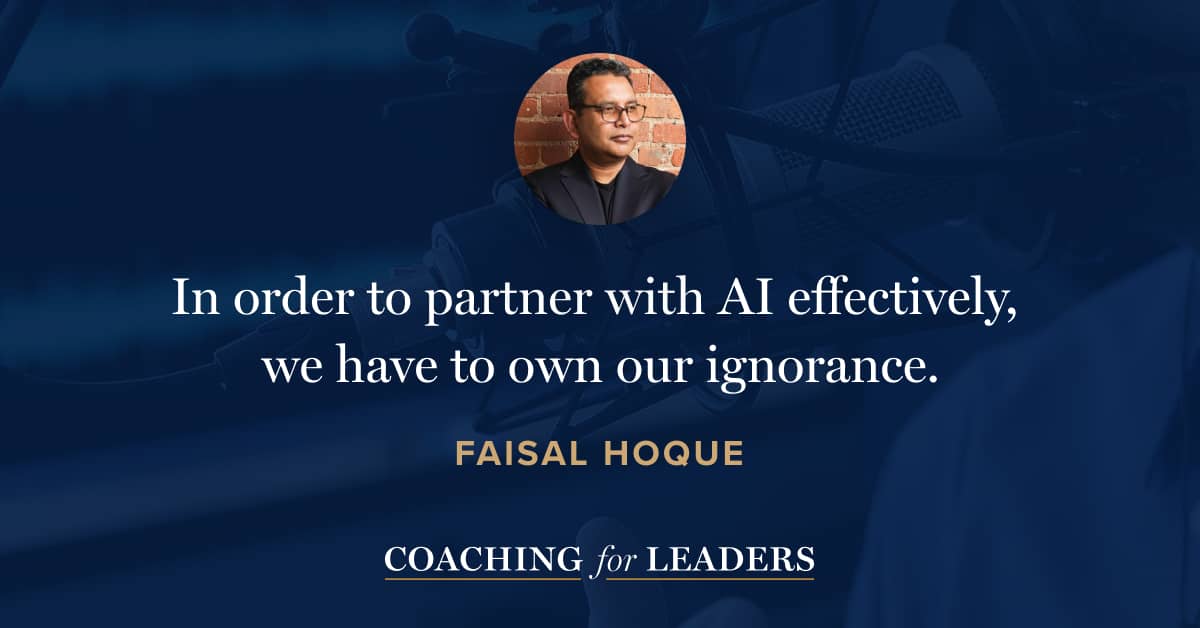Faisal Hoque: Transcend
Faisal Hoque is an award-winning entrepreneur and innovator and founder of SHADOKA and NextChapter. He is a three-time Wall Street Journal bestselling author of the books: Reinvent, Everything Connects, and Lift. He has just released his newest book: Transcend: Unlocking Humanity in the Age of AI*.
The most compelling use cases for AI aren’t people OR AI – it’s both. Leaders who learn how to partner with AI will almost certainly open doors that many others don’t. In this episode, Faisal and I explore (a few steps on) how to get started.
Key Points
- While we think about working with AI as very different than working with people, similar mindsets and skill sets help us with both.
- Partnering well with AI means asking better questions and being genuinely interested in the answers.
- Experts are limited by their perspective. Beginners are open to possibilities. We should approach AI with a beginner’s mindset.
- Using AI well means getting more comfortable with uncertainty. We need to own our ignorance.
- Playful discovery helps with our intrinsic motivation to keep going. When using AI, find the fun that keeps you engaged.
- This technology will do the logical work far better than any human. To partner well, work to increase your emotional intelligence.
Resources Mentioned
- Transcend: Unlocking Humanity in the Age of AI by Faisal Hoque
Interview Notes
Download my interview notes in PDF format (free membership required).
Related Episodes
- The Way to Be More Self-Aware, with Tasha Eurich (episode 442)
- Principles for Using AI at Work, with Ethan Mollick (episode 674)
- Becoming an AI-Savvy Leader, with David De Cremer (episode 710)
Discover More
Activate your free membership for full access to the entire library of interviews since 2011, searchable by topic. To accelerate your learning, uncover more inside Coaching for Leaders Plus.





